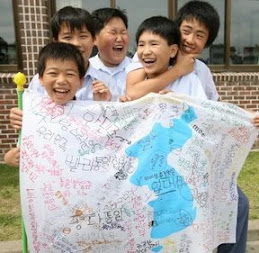August 15, 2020 marks the 75th anniversary of Korea’s liberation from the Japanese colonial rule, yet it was not true independence as Korea was denied independent, self-government (as promised by the Allies during the wartime summits, and suggested on the US postage stamp shown above), but rather was suddenly divided arbitrarily in half without Koreans’ knowledge.
As the Pacific War of the WW2 was nearing its end, overseas Korean independence fighters and activists — of all political persuasions — were preparing to join their compatriots in Korea to build a new post-colonial nation. Fearing potential reprisals on its citizens, the Japanese colonial authorities even asked prominent Korean socialist leader to form an interim authority to oversee peaceful transfer of power to the Koreans.
But all these changed overnight because the US policymakers had a different design on Korea, based on US national interest and not in regard to the wishes of the Koreans. Rather than respecting Korea’s rightful quick transition to self-government upon liberation, the US wanted to establish its own sphere of influence in Korea (replacing Japan’s influence) in preparation for its own postwar planning for Asia. With the Soviet entry in the Pacific War and its quick defeat of the Japanese Army in Manchuria, it was logistically impossible for US forces to reach Korea before the Soviet forces to gain local control and influence.
Hence came an impromptu decision by Washington more akin to traditional colonial land grab (when colonial powers drew arbitrary lines on the map for areas of control) and political expediency rather than the immediate and stated military objective of accepting Japanese surrender in Korea. The US abruptly proposed on August 10, 1945 to divide Korea into two occupation zones (one Soviet and another US), for which the Soviets agreed without objection in deference to wartime cooperation. Therefore, the US got to gain a foothold in Korea and at least control a half of Korea, even though its troops were no way near Korea.
The euphoria of Korea’s liberation on August 15, 1945 turned into confusion, chaos and turmoil, as on one hand, Koreans were organizing local committees to peacefully disarm Japanese colonial forces and moving towards building Korean self-government, but on the other hand, the US forces arrived in Korea on September 8 (more than 3 weeks after Korea’s liberation), shot at welcoming Koreans, took over Japanese colonial government and military compounds, raised the US flag and not the Korean flag. So much could have been achieved towards Korean self-government in that three vital weeks. However, the US went on to disband and outlaw all independent-minded, pro-self government Korean entities and activities, and instead established a US military government in its zone, rehired colonial collaborators in the administration, and brought back Korean members of the dreaded Japanese colonial police force to harass the discontented and rebellious populace. Suddenly, the US forces were acting like new colonial overlords instead of liberators and guarantors of Korean independence.
Instead of fostering quick Korean self-government, the stern US military government rule created a toxic environment of political violence and turmoil (assassinations of Korean political leaders and wanton massacres of those deemed to be leftists). Although Korean governments, albeit two separate and competing ones, were formed in 1948 (eerily reflecting the two separate occupation zones in 1945), the policies and impact of the US military government in Korea, more so than the dynamics of the Cold War or internal Korean political strifes, laid the seeds of turmoil, discontent and volatility that eventually led to the Korean War and the continuing division of Korea, 75 years and counting.












